Lebanon accuses Iran of 'blatant interference'
.
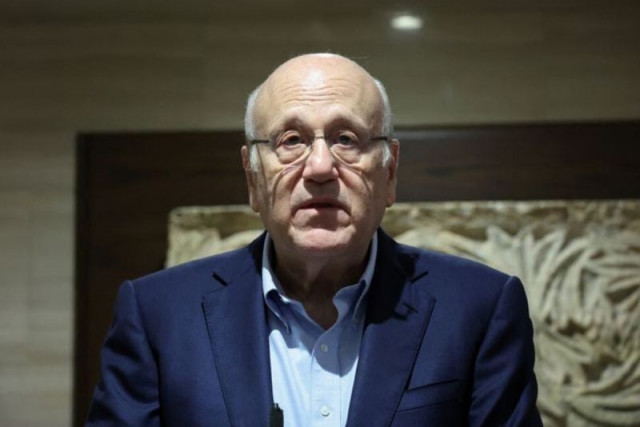
Lebanon's Prime Minister Najib Mikati offered a rare rebuke of Iran on Friday, charging it with "blatant interference" over remarks attributed to its parliament speaker about a UN resolution on Hezbollah and Lebanon.
United Nations Security Council Resolution 1701, which was adopted in 2006 and calls for only the Lebanese army and UN peacekeepers to be deployed in southern Lebanon, has come into focus during the latest Israel-Hezbollah war.
In remarks published by France's Le Figaro newspaper on Thursday, Iran's parliament speaker Mohammad Bagher Ghalibaf reportedly said his government was ready to negotiate on the implementation of the resolution, which is seen as a precondition for a ceasefire in the war.
Mikati hit back, accusing Iran of "blatant interference in Lebanese affairs and an attempt to establish an unacceptable guardianship over Lebanon".
"The issue of negotiating to implement international resolution 1701 is being undertaken by the Lebanese state," Mikati said in a statement released by his office.
"Everyone is required to support it in this direction, not to seek to impose new mandates."
Such public criticism is rare for the Lebanese government, over which Iran-backed Hezbollah holds sway.
Lebanon's foreign ministry later said that the charge d'affaires at Iran's Beirut embassy, Meysam Ghahrmani, had been summoned to discuss Ghalibaf's remarks at Mikati's request.
Beirut emphasised Lebanon's "keenness on making the necessary diplomatic efforts to stop the ongoing Israeli aggression on (Lebanon) by applying Resolution 1701 while protecting its sovereignty... and the security of its people and civil peace", a foreign ministry statement said on X.
Hezbollah is considered to be more heavily armed than Lebanon's national military, and is the only group that did not disarm following the Lebanese 1975-1990 civil war.
Israel has vowed to keep fighting Hezbollah until it secures its northern border with Israel, and to date the Iran-backed group has said it will not put down its weapons until a ceasefire is agreed not only for Lebanon but also in Gaza.
The Lebanese government is pushing for a de-escalation in Lebanon that does not link the country's fate to that of the Palestinian territory.
Israel has been at war in Gaza since Hamas's October 7, 2023 attack, which killed 1,206 people, a majority civilians, according to an AFP tally of official Israeli figures that includes hostages killed in captivity.
Hezbollah opened up a new front in the war in support of its ally Hamas by launching low-intensity attacks across the Lebanese frontier, with Israel then also launching cross-border strikes, in deadly violence that caused tens of thousands of people to flee on both sides.


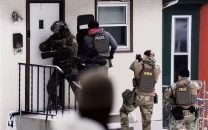

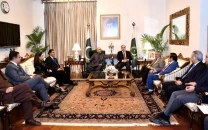
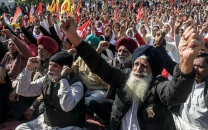
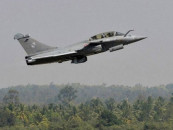












COMMENTS
Comments are moderated and generally will be posted if they are on-topic and not abusive.
For more information, please see our Comments FAQ